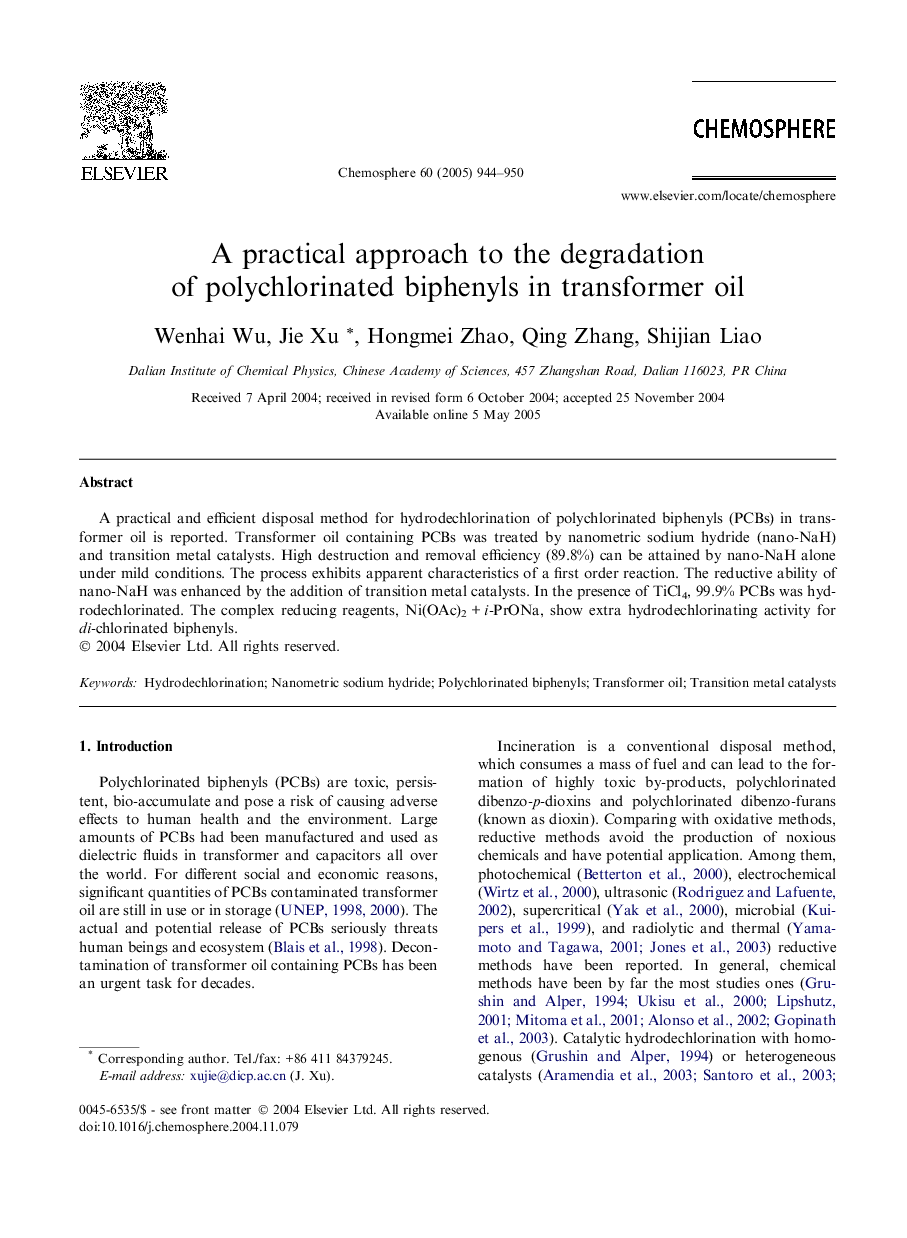| Article ID | Journal | Published Year | Pages | File Type |
|---|---|---|---|---|
| 9451259 | Chemosphere | 2005 | 7 Pages |
Abstract
A practical and efficient disposal method for hydrodechlorination of polychlorinated biphenyls (PCBs) in transformer oil is reported. Transformer oil containing PCBs was treated by nanometric sodium hydride (nano-NaH) and transition metal catalysts. High destruction and removal efficiency (89.8%) can be attained by nano-NaH alone under mild conditions. The process exhibits apparent characteristics of a first order reaction. The reductive ability of nano-NaH was enhanced by the addition of transition metal catalysts. In the presence of TiCl4, 99.9% PCBs was hydrodechlorinated. The complex reducing reagents, Ni(OAc)2Â +Â i-PrONa, show extra hydrodechlorinating activity for di-chlorinated biphenyls.
Related Topics
Life Sciences
Environmental Science
Environmental Chemistry
Authors
Wenhai Wu, Jie Xu, Hongmei Zhao, Qing Zhang, Shijian Liao,
